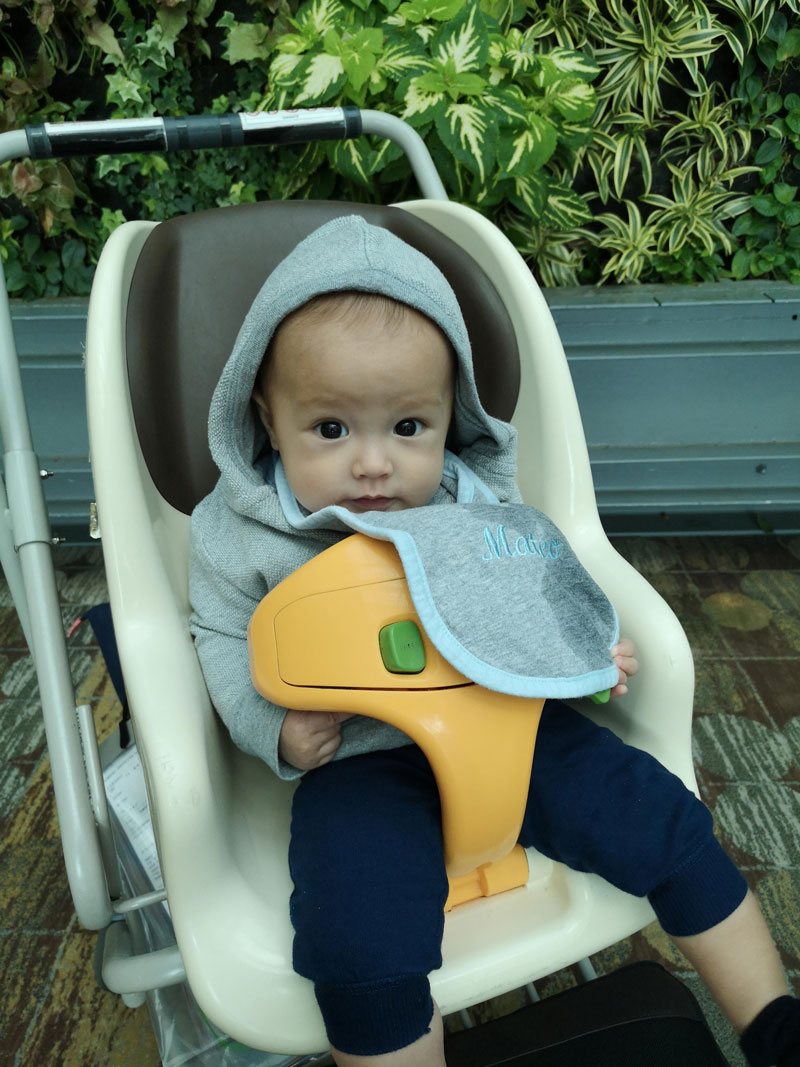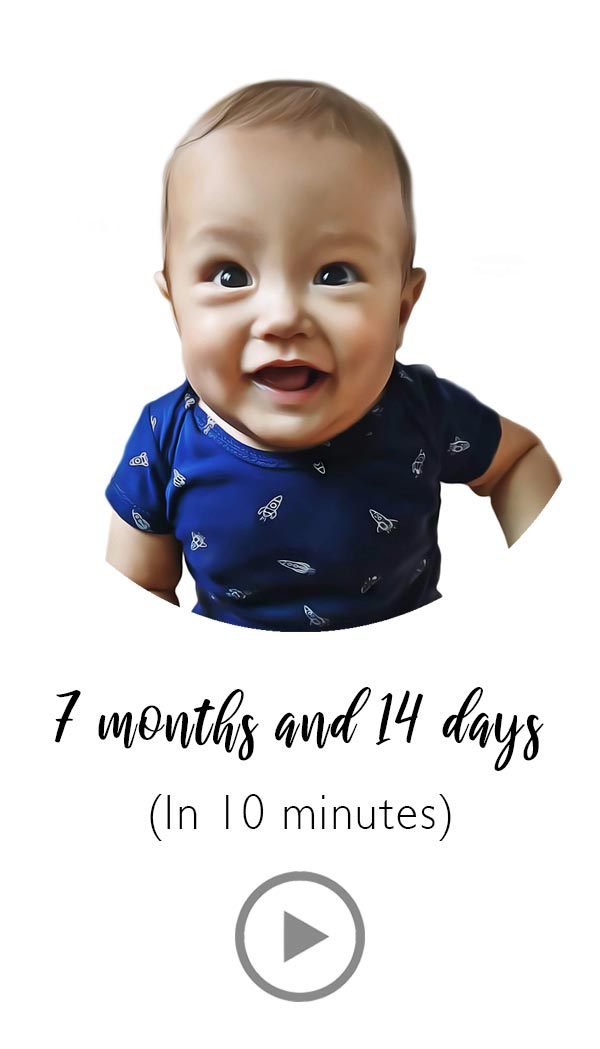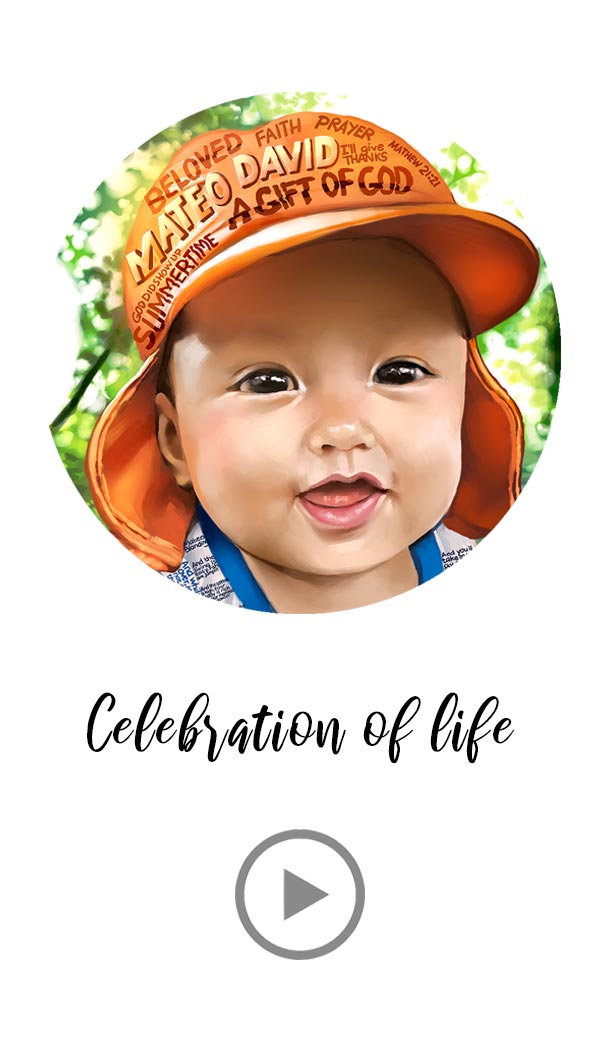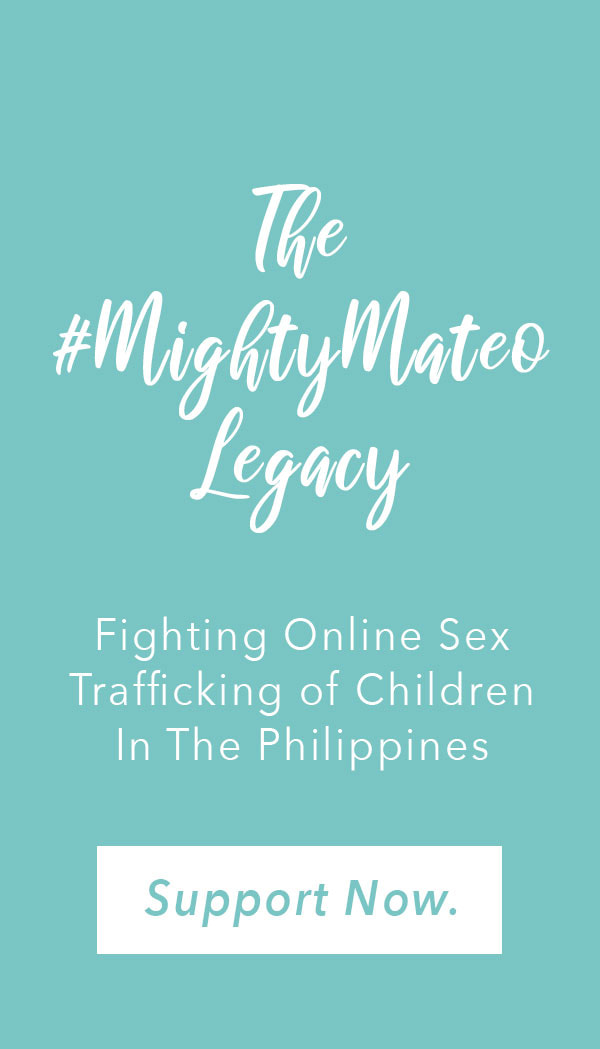|
By Joanna Blanding, mother to Mateo
1. I can smile and laugh during the day, and cry myself to sleep. I’ve had many laughs the last few months discovering André’s personality that’s much like mine, much like Mike’s, and pretty much his own. I’ve laughed at plenty of memes of parents trying to cope with the need for productivity or enjoy their elusive me time during the lockdown. This is the best I’ve seen. Mike amusing André with his dad jokes has made me laugh a lot too. 2. I took comfort in the fact that everyone was in an abnormal situation, theirs because of the lockdown, mine because I have one less kid. I wasn’t alone in experiencing a new normal. So when Singapore announced it was going to go back to some normalcy, I got greatly anxious. Everyone will move on and I’ll be alone experiencing a new life. 3. I cope through productivity. I’ve been working hard by waking up at 4am so I can have some constructive time while everyone else is asleep. I work during the hours when Mike or André are busy or don’t need me. I enjoy working on my businesses a lot. My team at work, apart from Mike and André, has been my constant since my grief started. They invest their time in the things that I put a lot of my time and effort into, so I prefer to spend my time and effort in investing in them. 4. I’m learning that people have no clue how to respond, reach out, or relate to a grieving person. More so to someone grieving the loss of a young child. I didn’t have any idea too before this. And that’s just how it is. I confided to someone about my erratic emotions so that I can be heard. But I felt like I was judged for my choice of coping mechanism—which is being ultra productive. I was hurt to be honest. I’ve been releasing to God the hurt of what I feel is people’s judgement of my productivity during this grieving period. It seems that the expectation is to be solemn and taking prolonged rest. Maybe, that’s all in my head. But you see, this is how a grieving person can possibly feel. 5. And to my point in #4, I kind of understand why there is an abrupt decline in the support during the grieving period. We had received massive support during the period when we were still fighting for Mateo’s life in the hospital, for which we have been so thankful. Anyone who would experience the kind of support we’ve received will feel no grief. Then, when prayer groups started going silent, God allowed me to feel real pain and loneliness. Again, it’s just that people don’t know how to comfort a grieving person. Or people were giving our family space. Or it’s just the reality of life—people will move on. 6. My heart is extra tender, so I choose not to expose myself to triggers. I honestly avoid meeting other parents. My friends are highly competent moms and dads. A well-meaning gesture to help feed my son, push his stroller, or call me out when I’m not paying attention to my kid are all triggers to feel incompetent. I’ve lost a son. The lie of the enemy, which I am trying hard (everyday) to win against, is the lie that I am an incompetent mother, thus I lost Mateo. 7. I am on a totally different page of grief from my husband. And I should respect that. He doesn’t feel any of what I’m feeling right now. And that should be fine. He’s been very understanding and supportive, and for that, I’m grateful. I can’t imagine going through this without him. 8. It’s tricky to show my vulnerability. I either fear being judged that I’m not nourishing my relationship with God that’s why I’m not victorious over my grief. Or that people might think their prayers for me are not working. 9. I find that the most helpful responses from people to me have been:
10. I respect people who are also grieving, but I am careful about confiding in them. I’ve noticed that there is a tendency to project their grief over my own situation. Reality for me is, every grief seems to be different from each other. So, I’m unsure how God will use my situation to comfort other people, in the future, who will go through my situation. I hope to find out. 11. Grief is a very lonely place. Even while I have an extraordinarily supportive husband who lost a son himself, it is still lonely. Our griefs are very different from each other. But this loneliness has been a gateway to a very special relationship with God. God did not promise a good life on earth. The Bible says, “I have said these things to you, that in me you may have peace. In the world you will have tribulation. But take heart; I have overcome the world.” Moreso, the Christian life does not promise a comfortable life, but it is a fulfilling one. Through my grief, I’m getting a bit of an insight into these promises. My conversations with God are profound. And only He and I know about that. I’m more curious now about heaven more than ever. Without a promise of heaven, there is no point to living when you’ve lost a child, even if I still have a husband and a son on earth. Because it’s been clear in my experience that God can also take them away anytime He chooses to. So if that happens, what will make me still carry on with life? Without the promise of heaven, life on earth has no purpose. I would simply decide to put my death in my own hands. But doing so may forfeit my ticket to heaven. So I won’t. So, I still think, the combo of receiving Christ in my life + heaven is still a pretty good deal.
0 Comments
Leave a Reply. |
�
#MightyMateo's parents document their journey through grief towards healing.
AuthorsJoanna Blanding Archives
December 2022
Blog Posts
All
|





